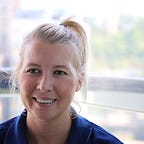Creating spaces to train & empower women in Cox’s Bazar
The United Nations Population Fund (UNFPA) and the United Nations World Food Programme (WFP) have jointly inaugurated Women-Led Community Centres in the Rohingya camps and host community in Cox’s Bazar, Bangladesh.
The Cox’s Bazar region is home to one of the world’s biggest humanitarian crises with more than 900,000 refugees living in overcrowded camps after fleeing violence in Myanmar.
For Rohingya women, finding a safe space to meet with each other, build skills and share their experiences is a challenge in the largest and most densely populated refugee camp in the world. Bangladeshi women living in Cox’s Bazar face similar challenges.
WFP and UNFPA have inaugurated ten Women-Led Community Centres, eight in the refugee camps and two in the host community. These will serve as a hub for women to come together, learn new skills and get an education. WFP is providing vocational skills training through the centres which will contribute to enhancing girls’ and women’s self-dependency.
“Women and teenage girls in the refugee and host community generally have very few opportunities to become self-sufficient,” said Richard Ragan, Country Director for WFP in Bangladesh.
“This is a concern for WFP as they often bear the brunt of food insecurity at the household level. These skill development trainings will provide them with an opportunity to become economically self-reliant, learn skills they’ve never had access to, and improve their food security.”
The training in the centres will also provide training and education in areas related to women’s empowerment, including gender-based violence awareness, nutrition, hygiene and literacy.
“Through the WLCCs, UNFPA is expanding its intervention in Cox’s Bazar through this increased focus on women and girls’ empowerment and self-reliance in order to help make a difference in their lives, both in the short- and long-term,” said Dr. Asa Torkelsson, the UN Population Fund’s (UNFPA) representative to Bangladesh, at the inauguration ceremony.
The centres will also be open to men and boys and allow local communities an open space for cultural events. Engaging men and boys in the training and education means they are more likely to support women’s empowerment at home and in their communities.
The self-reliance training provided in the Women-Led Community Centres is funded by DFID and multilateral contributions. Multilateral contributions allow WFP to have more flexibility in emergency responses and greater capacity to intervene at the right time with the right support.
Read more about WFP’s work in Bangladesh.
